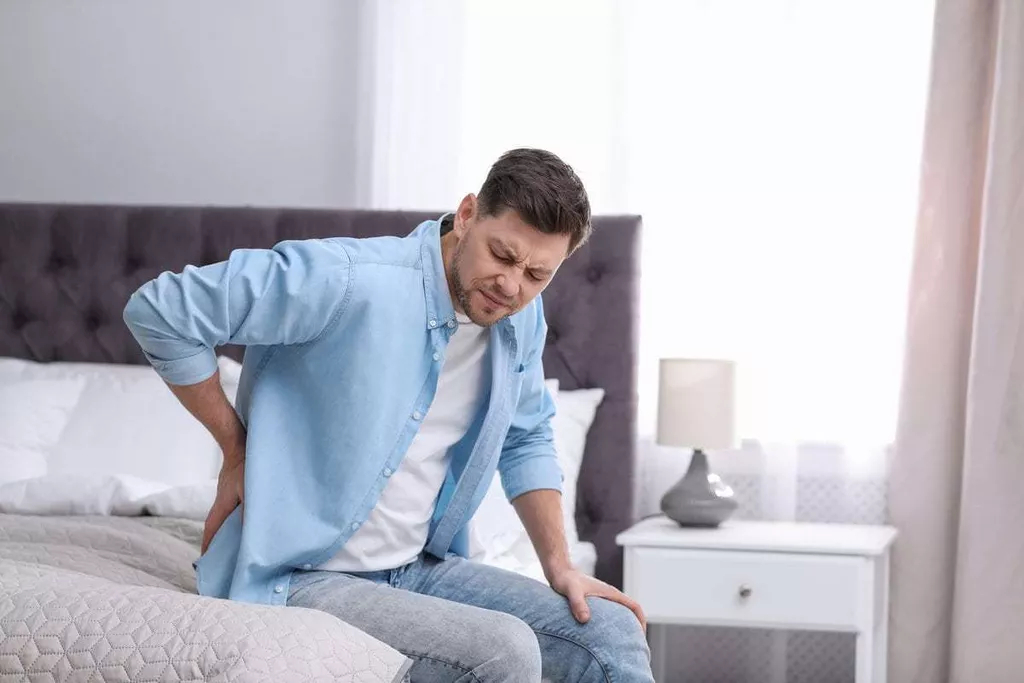Contents
Gender differences in the structure of risk for alcohol use disorder in adolescence and young adulthood. Substance-induced depression and independent depression in proximal risk for suicidal behavior. This can exaggerate your depression symptoms because it depresses the brain and nervous system. Theresa Parisi is a Certified Addiction Professional , Certified Behavioral Health Case Manager , and International Certified Alcohol and Drug Counselor with over 12 years of experience in the addiction treatment field.
Raised in a low-income environment where he was surrounded by drugs, alcohol, and violence, John was able to find recovery and change the course of his life at the early age of 22. John is the creator of the Mindfulness in Recovery Program and co-founder of the Mindful Life Program. Alexis “Lexi” Thomas serves as Admission Specialist for Burning Tree Programs.

Does alcohol abuse lead to depression, or are depressed people more prone to alcohol abuse? Alcohol is a depressant that only makes you more depressed and increases the number of times you have episodes of severe depression. At least 30 to 50 percent of people who drink too much are also depressed. Drinking alcohol also makes antidepressant medications less effective. A dual diagnosis can be complicated to treat, no matter the circumstances. The most common treatment options are included below, but know that recovery requires a personalized treatment plan that best suits your mental health needs.
Depression and alcoholism co-occur in about 1.2 percent of adults. That means about one out of eight depressed individuals have a problem with alcohol, and vice versa. The information contained on this website is not intended to be a substitute for or to be relied upon as medical advice, diagnosis, or treatment. Always seek the advice of your physician or other qualified health providers with any health-related questions you may have. Using alcohol can also negatively affect your sleep patterns, which in turn can increase symptoms of depression like exhaustion and difficulty concentrating.
Alcohol may be a form of self-medication for people with depression. The “burst” of energy from alcohol can be a welcome relief against some symptoms. For example, alcohol may temporarily reduce anxiety and lower inhibitions. Individuals with alcohol use disorder may drink too much alcohol, too often.
目次
Take control of your life
This is because alcohol impacts the same areas of the brain that help regulate mood. Drinking can alter the brain’s chemical levels, which can trigger the symptoms of a mental health illness, such as depression. Heavy alcohol use can produce, or even worsen depressive symptoms in several different ways. Moderate doses of alcohol are known to reduce important neurochemicals in the brain that are linked to feelings of mood and well-being. Tryptophan is a precursor to serotonin, and alcohol reduces the circulation of tryptophan in the brain, leading to a decrease in serotonin. A lack of serotonin, an important neurotransmitter, is directly linked to symptoms of depression.
Outpatient treatment may only be an option if a person’s current level of physical dependence does not necessitate the need for inpatient treatment. Philip Hensarling serves as the Executive Director of Renewal Lodge. Philip has served Burning Tree Programs for over 6 years which roles include Admissions and Corporate Director of Utilization Management. Philip is also a Licensed Chemical Dependency Counselor Intern and alumni of Burning Tree Ranch. He is also pursuing his Bachelors of Healthcare Administration from Southern New Hampshire University. His goal is to make quality treatment more accessible to those suffering from the disease of addiction.

Both conditions can cause or worsen the other in at-risk individuals. But it is not definitive whether one is directly responsible for the other. Alcohol abuse is found to produce greater depressive symptoms among people who are not undergoing treatment for depression. Men who abuse alcohol experience less positive effects and more significant depression and anxiety, while women who abuse alcohol experience greater negative effects and depression.
It’s an Emergency
Whereas intense, negative feelings can cripple other depressive patients. Untreated depression can lead to thoughts of suicide or attempts to 11 things people don’t tell you about growing up with an alcoholic parent self-harm. Depression also puts patients at high risk of engaging in substance abuse as a way to self-medicate their distressing symptoms.
Major depressive disorder involves persistent and prolonged symptoms, but depression, in general, takes on many different forms. Depressive symptoms can result from life stressors, mental health conditions, medical conditions, and other factors. The study sample was one of convenience, purposely selected for alcohol detoxification and rehabilitation. Secondly no past psychiatric history of depression or family history of mood disorders was obtained from the participants at intake. Such a sample may produce skewed prevalence rates of depression. The need for screening for depression in alcohol-dependent persons and continuous monitoring for it during treatment of alcohol dependence cannot be overemphasized.
- Less than 1% of the participants used other substances of abuse.
- Many of the treatment options available for alcohol misuse will also help you learn healthier coping skills for mental health challenges that are related to drinking, such as depression.
- In addition, your doctor may prescribe medicines that are meant to lower alcohol cravings, which can reduce your desire to drink.
- Alcohol abuse is found to produce greater depressive symptoms among people who are not undergoing treatment for depression.
During therapy, you can learn coping mechanisms that can help you return to life without drinking. Alcohol use disorder and depression are two conditions a brief history of alcoholism that often occur together. What’s more, one can make the other worse in a cycle that’s pervasive and problematic if not addressed and treated.
But if you turn to alcohol to get you through the day, or if it causes trouble in your relationships, at work, in your social life, or with how you think and feel, you have a more serious problem. A drink once in a while when you’re stressed out or blue is one thing. But when you need that cocktail every time a problem crops up, it could be a sign of alcohol abuse. Some people say they drink alcohol to “drown their sorrows” after a bad breakup, job loss, or other major life stress.
Questions About Treatment?
Following a successful detox, an inpatient or outpatient treatment setting may be advised depending a variety of factors determined via a substance use disorder assessment conducted by a medical professional. Inpatient treatment allows for 24/7 monitoring and care in a hospital or other treatment facility. She has been a Certified Clinical Medical Assistant for 9 years and has worked in various specialties during that time. Some of these include pediatrics, internal medicine, psychiatry, and rheumatology. She has worked in the substance abuse treatment field for almost 6 years.

Effects of major depression on remission and relapse of substance dependence. In addition, if you are taking antidepressants, alcohol can have a negative interaction with the drugs and further exacerbate your depression symptoms. Prolonged alcohol abuse can drastically change and rewire the brain as well as impact many other chemical balances in the body. This is particularly true of the brain’s neurotransmitters, which send electric and chemical impulses and control a great deal of the body and mind’s functioning. Get professional help from an online addiction and mental health counselor from BetterHelp. The “high” from drinking alcohol only lasts a little while; afterwards, the depression is worse.
Alcohol and Depression: What to Do
It can interfere with normal levels of your body’s chemistry, make you sleepy, and even cause you to pass out. Reach out to someone you trust, like a friend or family member, and ask for their support in finding treatment. Misusing alcohol while you are depressed increases the risk of suicide attempts. Are you looking for ways to be an ambassador or leader as it relates to student mental health? JED has many ways for you to stay connected through our resources and educate yourself and those around you. Students are struggling with their mental health more than ever.
Alcohol Worsens Depression; Depression Worsens Alcohol Abuse
Young-Wolff KC, Kendler KS, Sintov ND, Prescott CA. Mood-related drinking motives mediate the familial association between major depression and alcohol dependence. Individuals who suffer from persistent depressive disorder, or dysthymia, have recurring symptoms of depression for at least two years. Some weeks and months may include minor signs of depression, while other times they are much more severe. Without proper treatment, self-medicating depression with alcohol increases the risk of severe bodily injury, and even suicidal behaviors.
Alcohol Abuse and Depression
For others, the condition may be a lifelong struggle; treatment can dramatically improve the quality of and extend the length of life, however. Because depression is so prevalent among alcoholics, almost all treatment centers have a great deal of experience helping patients overcome both conditions. Regardless of which treatment option you choose, it is important that you seek treatment as quickly as possible. “An experienced psychiatrist familiar with mood disorders and the effects the risks of mixing alcohol and summer heat of alcohol abuse can be instrumental in recommending appropriate medications and monitoring medication efficacy,” says Dr. Kennedy. The objective of the study was to determine comorbid depression among 188 Alcohol Use Disorder Identification Test positive participants. The data is part of that collected in a six-month prospective study done to determine the cost-effectiveness of community-based and institution-based detoxification and rehabilitation of alcohol-dependent persons.
美人になりたい運営事務局
最新記事 by 美人になりたい運営事務局 (全て見る)
- 7Slots Casino Üyelik ve Kayıt İşlemleri - 2025年5月11日
- Plinko – Jouer au jeu Plinko (casino) en ligne en France - 2025年5月11日
- Plinko – Jouer au jeu Plinko (casino) en ligne en France - 2025年5月11日





